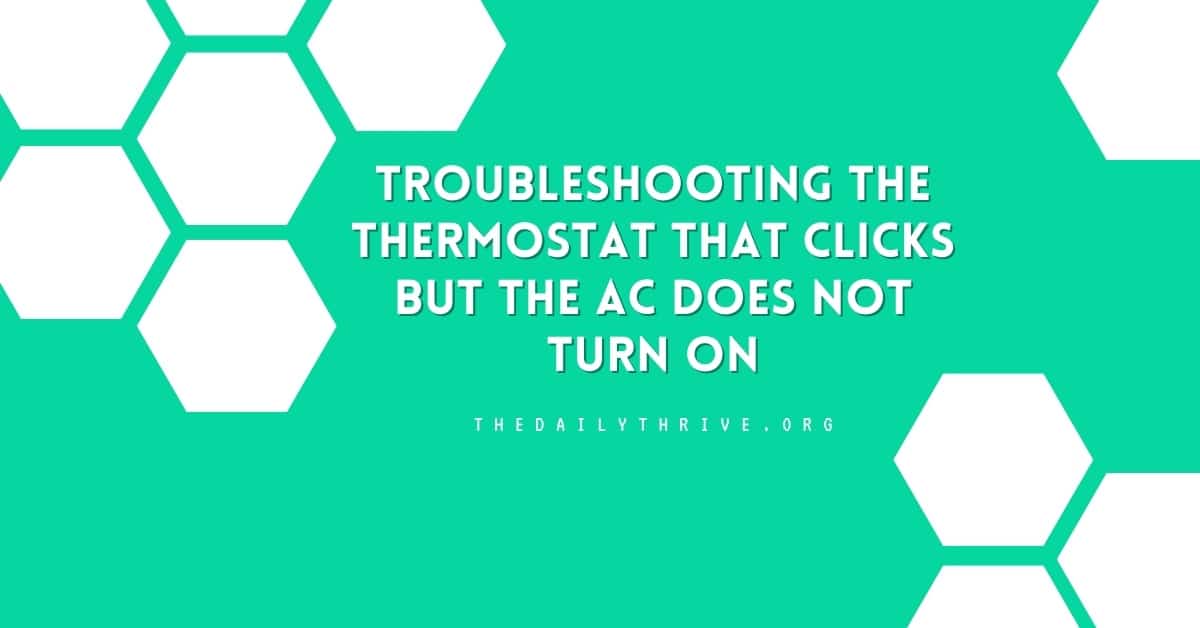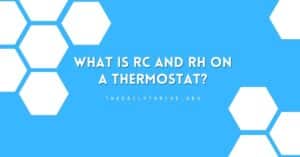A common issue homeowners experience during the hot summer months is when their thermostat clicks, but their air conditioning (AC) unit does not turn on. This can be frustrating, especially during peak temperatures, and can lead to discomfort and even health issues. This article will discuss some of the common causes of this issue and what steps you can take to resolve it.
Check the Thermostat Settings
The first thing you should do is check the thermostat settings. Ensure the thermostat is set to “cool” and the temperature is set to a lower temperature than the current room temperature. If the thermostat is not set to the correct settings, it will not signal the AC unit to turn on.
Check the Power Supply
Check the power supply to see if the thermostat settings are correct and if the AC unit still does not turn on. Make sure the AC unit is properly plugged in and that the circuit breaker for the AC unit has not been tripped. If the circuit breaker has been tripped, reset it and see if the AC unit turns on.
Check the Air Filter
A dirty air filter can cause the AC unit to not turn on. The air filter should be checked and replaced regularly to ensure proper airflow. A clogged air filter can cause the AC unit to shut down as a safety measure.
Check the Condenser Unit
The condenser unit is the outdoor unit of the AC system. If the condenser unit is not functioning properly, the AC unit will not turn on. Check the condenser unit to make sure it is not obstructed by debris, such as leaves or branches. Also, check the unit wiring and connections to ensure they are secure and not damaged.
Check the Capacitor
The capacitor is a small, cylindrical object that stores electrical energy and boosts the AC unit when it starts up. If the AC capacitor is faulty, the AC unit will not turn on. The capacitor should be checked by a professional HVAC technician and replaced if necessary.
Check the Compressor
The compressor is the heart of the AC unit and is responsible for compressing the refrigerant to cool the air. If the compressor is not functioning properly, the AC unit will not turn on. A faulty compressor may need to be replaced by a professional HVAC technician.
Check the Fan Motor
The fan motor is responsible for blowing air over the evaporator coil to cool the air. If the fan motor is not functioning properly, the AC unit will not turn on. The fan motor should be checked by a professional HVAC technician and replaced if necessary.
Check the Evaporator Coil
The evaporator coil is located inside the air handler unit and is responsible for removing heat from the air. The AC unit will not turn on if the evaporator coil is dirty or frozen. The evaporator coil should be checked and cleaned by a professional HVAC technician.
Check the Refrigerant Levels
The refrigerant is the substance that cools the air in the AC unit. If the refrigerant levels are low, the AC unit will not function properly. Low refrigerant levels can be caused by a leak in the system, which should be repaired by a professional HVAC technician.
Check the Thermostat Wiring
The AC unit will not turn on if the thermostat wiring is faulty or damaged. The thermostat wiring should be checked by a professional HVAC technician and replaced if necessary.
Check the Safety Switches
The safety switches in the AC unit are designed to shut down the unit if a safety issue is detected. If one of the safety switches is triggered, the AC unit will not turn on. A professional HVAC technician should check the safety switches to ensure they are functioning properly.
Call a Professional HVAC Technician
If you have checked all of the above and the AC unit still does not turn on, it’s time to call a professional HVAC technician. They have the expertise and tools necessary to diagnose and repair the issue. Attempting to repair the AC unit yourself can be dangerous and cause further damage to the system.
A thermostat that clicks but an AC unit that does not turn on can be a frustrating and uncomfortable problem to have, especially during the hot summer months. However, you can identify and resolve the issue by following the steps outlined in this article. Remember to always prioritize safety and call a professional HVAC technician if necessary. By caring for your AC unit, you can ensure your home stays cool and comfortable all summer.






